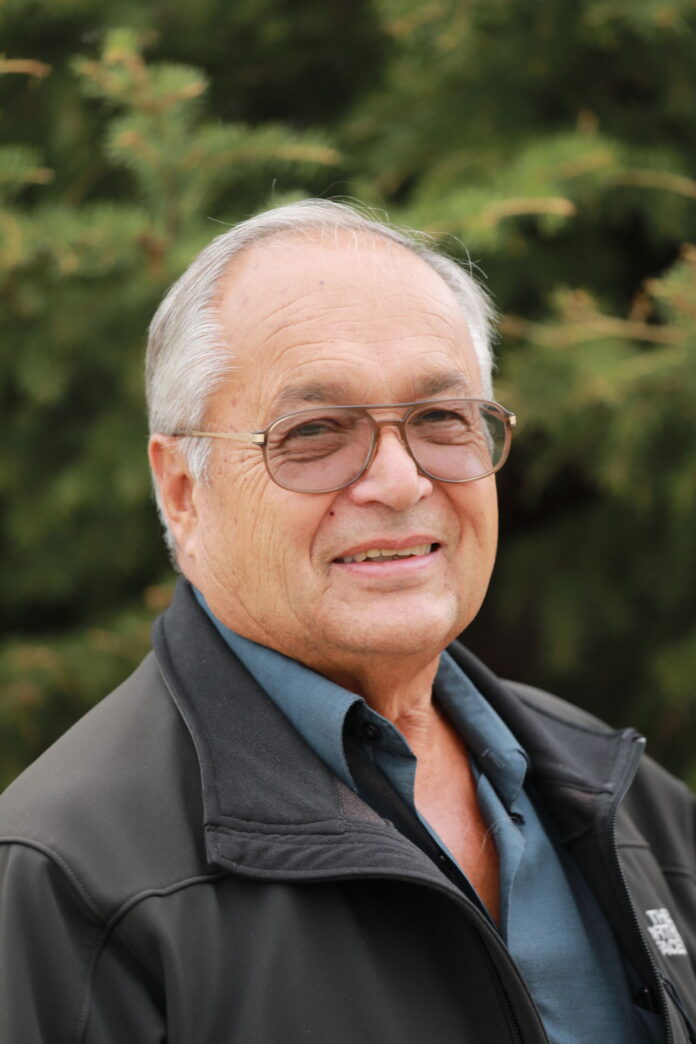Education advocate and former N.W.T. Premier Joe Handley is calling for educational reform in N.W.T.
Handley warns that education resources are dwindling in the far North, putting local youth at high risk of losing career development opportunities. In turn, the communities in N.W.T. risk losing their future leaders, he warns.
Handley has experienced these struggles firsthand, going back to the days of his youth in Saskatoon and his early days at teachers’ college.
“It’s my background right from when I was 20 years old going to Teachers College in Saskatchewan. I went through the Indian Education Program in Saskatoon,” he told True North FM.
“I’ve been involved in education all my life, including when I was in politics,” explained the former N.W.T. Premier.
Handley said he thinks high schools in the far North could do a better job of counselling and encouraging students into post-secondary education.
“There’s not enough of that kind of support to help the students prepare. So a lot of students graduate from high school without the prerequisite courses needed in post-secondary, and we need to improve that situation,” he said.
Graduates from the North often find themselves having to take one or two years of upgrading to qualify for post-secondary programs and that discourages a lot of them, Handley explained.
Handley also pointed to the lack of affordable housing available to students in the far North, even in urban centers.
“In Yellowknife, the challenge is one of availability of good housing and good rates. Students can’t afford to pay between two and three thousand a month for an apartment, so it’s full of challenges.” he lamented.
Handley said many youth who are living in remote N.W.T. communities would like to study in Yellowknife but cannot afford the cost of housing.
The result is low enrolment in post-secondary institutions, which has a kind of snowball effect. Handley said because post-secondary enrolment in N.W.T. is so low, many local students feel put off to stay here. Some worry low enrolments can translate to a lack of social and intellectual engagement in classrooms and on campus. As a result, many N.W.T. post-secondary students and their families often look south for options, he explained.
Handley said that finding funding is a constant struggle for schools in the far North.
Aurora College saw its funding cut by $1.8 million dollars last year and Handley is concerned about how this will impact students and prospective students in N.W.T.
Handley recently decided to leave his role as chair of Aurora College’s board of governors.
Handley explained it was a tough decision which was fuelled by differences in opinion around where funding should be focused.
Questions around funding are a constant struggle among education leaders and advocates, especially in the far North where resources and funding are more scarce compared to other parts of the country.
Handley said he did everything he could to advocate for students while he led the board.
“I think it’s time for me to just step aside and let somebody else take the lead for a while. It’s exhausting work as it was very exhausting as a chair of a board, a great board, a lot of good instructors, but not good support from governments,” he explained.
Handley said he’s also concerned about economic uncertainties especially with some big employers leaving N.W.T., including two major mining companies closing operations within the next few years.
“When that happens we’ll lose some big employers. So where are the students, where are the graduates going to go? So we have to come up with some new programs.” urged Handley.
“We need programs that interest students, and program development is key,” he added.
One such program on the horizon is a new Bachelor of Education program that Aurora College is working on, where the students who graduate can pursue careers in teaching.
“More post-secondary programs are in the works including a social degree program, a dental hygienist and a new business degree program,” said Handley. “Those are the kinds of programs that will attract students, but some will require federal funding to go ahead.”





